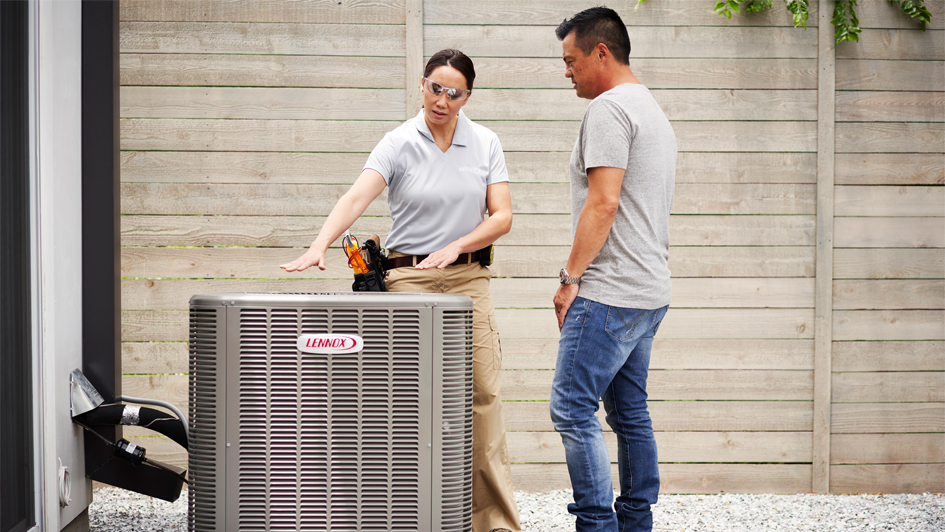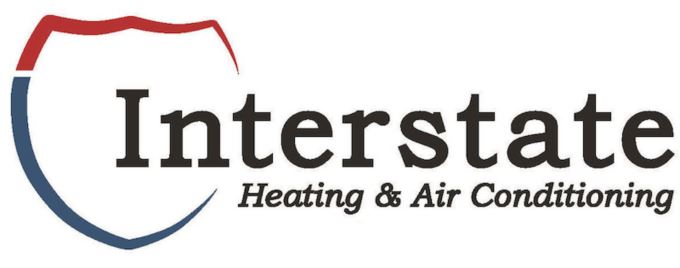
Selecting the correct HVAC system size for your home is crucial. It affects your home enjoyment and your power expenses. In this HVAC sizing guide, the specialists at Interstate Heating & Air Conditioning will explain how to choose the right size of heating and cooling system for your home, what factors they take into account and why choosing the best size HVAC is so important to your convenience.
How Does HVAC System Size Affect Your Home Comfort and Efficiency
Proper HVAC size varies from home to home. Your HVAC system needs adequate heating and cooling capacity to make your entire home comfortable. It shouldn't struggle to keep up in extremely warm or frigid weather. However, an HVAC system that's too large is inefficient, wastes money and can lead to complications that make your home less enjoyable.
Key Features Professionals Consider for HVAC Sizing in Nebraska, NE
To select the appropriate HVAC system size for a home, the HVAC installation experts at Interstate Heating & Air Conditioning carry out a Manual J load calculation to determine how many British Thermal Units (BTUs) are needed to heat and cool and the home. A Manual J calculation evaluates multiple features of your home, such as:
- Size of the home: The size of the home is arguably the most significant factor in picking the size of your HVAC system. How much space will your new HVAC system be required to keep comfortable?
- Insulation levels in the home: A properly insulated home retains the indoor temperature more effectively, which can influence how much heating and cooling capacity you require.
- Local Weather: The local climate in Nebraska, NE, has a significant role in determining the correct size HVAC. Homes in sunnier climates may require a system with an increased cooling capacity, while chillier regions may need less.
- Window placement and size: Windows can be a considerable source of energy loss. The number, size, type of glass used, and whether they’re single paned or double paned can significantly impact heating and cooling requirements.
- Sun exposure: A home that gets a considerable sunlight will inherently be warmer than one that doesn't, which impacts central air sizing. Home placement in relation to prevailing winds and number of nearby shade trees also impact the correct HVAC size.
Most Common DIY HVAC Size Mistakes
A common mistake homeowners make when determining the size of their HVAC system is to base their decision on square footage. Although the square footage of your home has a significant impact on what size HVAC you need, other elements also influence how much heating and cooling capacity is required to keep your home comfortable.
Another typical mistake is not hiring a professional. It's crucial to have a skilled HVAC technician conduct a Manual J calculation, which takes all the essential aspects of your home into consideration to find the correct HVAC size.
What Difference Does HVAC System Size Make?
An inadequately sized system can result in comfort problems and drive up your monthly power bills. Here's a closer look at the pitfalls of a incorrectly sized HVAC:
Issues with undersized HVAC systems:
- Reduced lifespan and breakdowns: HVAC systems that don't have enough power often operate continuously to attempt to regulate the temperature of a home, leading to excessive wear and tear. This can cause breakdowns and even require premature HVAC replacement.
- An uncomfortable home: Small HVAC systems are too weak to heat and cool your entire residence, which can result in hot, stuffy rooms or areas of your home that are chilly and uncomfortable.
- Higher energy expenses: An underpowered HVAC system that runs continuously trying to keep up uses more energy, running up your monthly power bills and wasting your hard-earned money. A properly sized and energy-efficient HVAC system consumes less energy and helps to lower your monthly bills.
Issues from oversized HVAC systems
- Wasted money: Larger HVAC systems are usually more costly, so investing in more heating and cooling capacity than your home needs is an avoidable expense.
- Shorter system life and breakdowns: HVAC systems that are oversized often cycle on and off, referred to as short cycling. This can lead to wear and tear on your equipment, reducing its service life or requiring HVAC repair.
- Excessive indoor humidity: An HVAC system should regulate indoor humidity, but an oversized HVAC system often completes its cycle before it has time to accomplish that task. This can cause indoor air quality issues, and encourage the growth of mildew or mold.
Get Help Replacing or Sizing Your Home HVAC System from Interstate Heating & Air Conditioning
Now that you have learned some of the aspects of your home that influence what HVAC system size is right for you, it's time to find a new heating and cooling system. Interstate Heating & Air Conditioning can help.
We’ll evaluate your home and provide you with a free, no-obligation estimate for HVAC installation. We’ll assess your home to determine the ideal HVAC system size for you, so you can enjoy a cozy environment every day of the year.
Call 402-581-9641 today to set up your free estimate for HVAC installation in Nebraska, NE.
